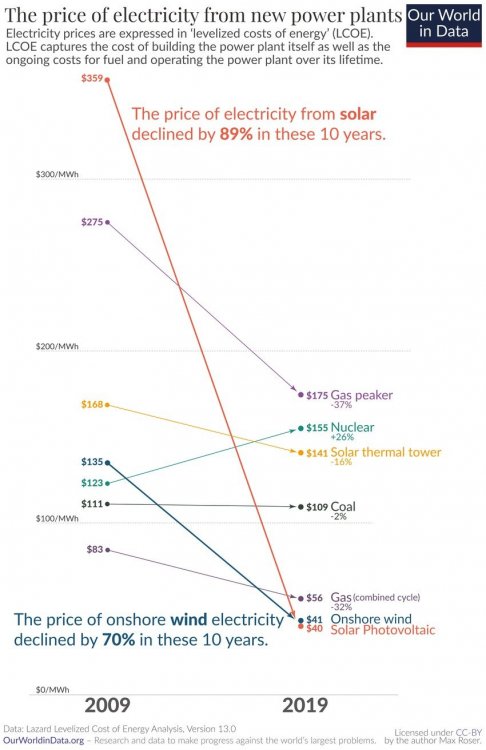Leaderboard
Popular Content
Showing content with the highest reputation since 04/26/23 in all areas
-
6 points
-
I asked our benevolent overlord Dave about the ad settings, and apparently Google AdSense enabled "vignette" ads without asking us. He's turned them off now. Hopefully that's the end of the issue and they don't find another more irritating thing to turn on.5 points
-
From a different perspective, it appeared you were badgering a newbie, @Benjamin Karl, who was not making a claim but rather requesting opinions on the claims made in a video. Whose points he courteously summarized when asked to. While he could be encouraged to dig deeper for other sources, I am not sure that your tone was that of a friendly guide in that quest.5 points
-
This is sad news. He was one of the great philosophers of our time. He belongs to one of the most science oriented philosophers and one of the most honest thinkers I have known during my philosophy study. He didn't spare anybody with too naive ideas, be it materialistic or dualistic, but he always was kind, never attacking people personally, but critical reflecting on their ideas. He was able to show that it is possible to have a theory of consciousness, without leaving a physicalist ontological stance. Many people thought that his book 'Consciousness Explained', should have been titled 'Consciousness Explained Away', but I certainly do not agree with that. Consciousness exists, but it can be explained. Same for free will. He could explain how a personal and societal relevant concept of free will can go perfectly together with determinism, where others keep sticking to either 'magical free will', or denying free will altogether. In his broader ideas, he was an atheist and humanist. I do not know much about his personal life, but at least I know he also knew how to enjoy the pleasant sides of life. Enjoyer of (red?) wine, making his own cidre, harvesting the apples himself. I remember I once saw a video, where he was sitting on his tractor. I think he lived a very fulfilled life. We should all be glad that he lived his life as he did. I will miss the many new ideas he could still have found, even in his higher age. A loss for the philosophical world and many other people who are, and might still be, inspired by his thinking.4 points
-
4 points
-
I agree. The political right and maga-class has been getting beyond ridiculous in ostracizing people who refuse to tow the party line and repeat the lies, casting out anyone deemed to be "others." It demands a level of purity nobody can ever maintain, and it's pretty sad that their views can't hold up to even remedial scrutiny.4 points
-
The solution is for people who are not themselves autistic, and who evidently don’t understand what autism even means, to stop proposing “solutions”. I am autistic, and I am not a problem that needs to be solved.4 points
-
Wow, so much to unravel here. Yes. The scientific background was in the open. So it would be just a matter of time. And then the point Swansont mentioned: That is true, more or less. But Japan simply did not capitulate. So the war could have taken much longer, taking many lives of American soldiers. Yes, but only after Germany was defeated. Heisenberg was in charge. The infamous meeting between Heisenberg and Bohr in 1941, gave the latter the impression that the Nazis were making serious work of the atomic bomb, and brought this impression to the US. Yep. I have seen the 'atom cellar' in Haigerloch: Does not quite compare to Los Alamos, is it? I would not put my hand in the fire for this, but it surely was a reason: Truman said something like this about the Soviets and the atomic bomb: "Now we have a real hammer on those boys". Another reason might have been to have a 'real live test'. A hint for this is the second bomb. One of the A-bombs was a U-235, the other a plutonium bomb. Wouldn't it be interesting to compare their effects 'in the field'? About the capitulation of Japan: there was a struggle between the civilian government and the military. The government wanted to give up, the military wanted to fight until the bitter end. One of the struggling points was the position of the emperor. The US wanted an unconditional capitulation, the Japanese government found that the position of the emperor could not be discussed. In the end the Japanese government made a very unusual proposal: let the emperor decide. In the meantime the first atomic bomb was dropped. If this fact had an influence on the decision of Hirohito is not known, fact is that he chose to capitulate. His speech in which he called for the capitulation was recorded, to be brought to the Japanese radio studios. Radical militaries tried to steal the recording on its way to the radio station, but they did not succeed. Hirohito's speech was broadcasted, and Japan capitulated. And the US more or less let the emperor untouched. Had the US made it known that the emperor could stay earlier, Japan might also have capitulated earlier. Maybe the A-bombs would not have been necessary. Main source: Bert Röling, who was a.o. member of the International Military Tribunal for the Far East (also called the Tokyo Tribunal, similar to the Nürnberg Tribunal in Germany). Hmmm. Lise Meitner and Otto Frisch were hardly Nazis, they were Jewish and fled Germany in 1938. Otto Hahn: Fritz Strassmann: So four of the 'main characters' were definitely not Nazis. Equating 'German' and 'Nazi' is simply wrong, also during WWII.4 points
-
4 points
-
“what makes this fee revolutionary is that it will apply to emissions that don’t happen on European soil. The EU already puts a price on many of the emissions created by European firms; now, through the new Carbon Border Adjustment Mechanism, or CBAM, the bloc will charge companies that import the targeted products — cement, aluminum, electricity, fertilizer, hydrogen, iron and steel — into the EU, no matter where in the world those products are made.” https://knowablemagazine.org/content/article/food-environment/2024/big-boost-europe-carbon-neutral-goals-cbam This removes incentives to move carbon-intensive industry out of the EU, since that won’t sidestep tariffs any longer. The tariff accounting includes the electricity used for production, so there’s an incentive for business exporting to the EU to use green energy4 points
-
The CEO of IKEA is now the Prime Minister of Sweden. He is currently assembling his cabinet.4 points
-
45 years ago President Carter has helped me to escape from the USSR.4 points
-
4 points
-
Alkonoklazt has been suspended for a week because staff would like a break from all the rebellion against the system.4 points
-
Perhaps we can dispense with the notion that he’s a genius, and stop paying attention to his nonsensical ramblings.4 points
-
4 points
-
4 points
-
Identity is about who we are and how we identify ourselves to others. I could tell you I identify as a father, and while I could share pictures of me with my kids or submit to a paternity test to meet your arbitrarily high threshold in the name of science, most commonly we simply accept my statement as true since it’s ME telling YOU how I identify MYSELF. Likewise, I might identify as a baseball fan. I could produce tickets to the games I’ve attended and post all the games I’ve watched on TV in the past year and even all the times I’ve participated out on the diamond with friends, but most commonly my saying “I identify as a baseball fan” is sufficient based on my say so alone. You don’t ask to test it and submit it for peer review. Perhaps I was born in Russia then later moved to Germany. I could show you my passport and citizenship papers, but if I tell you I now identify as German, that really ought to be enough no matter how much you love the motherland and hate that I’ve defected. Perhaps I was given the name John at birth, and now tell you I instead identify myself as Bruce or Loretta. You don’t get to tell me I’m not allowed to do that like some entitled overseeing brat. And on and on and on ad infinitum … I could identify as a reader, or an audiophile, or as an art lover, or a car collector, or a weapons expert and cigar aficionado, a brewer, a builder, a lover of memes… and you wouldn’t sit here demanding that I produce scientific evidence to support these. It’s about ME telling YOU how I identify MYSELF, and you don’t get to tell me I’m wrong no matter how forcefully you disagree with the identity of myself I’ve expressed. It’s simply not your place. End program. Do not pass Go, do not collect $200. YOU have no say in anything related to MY identity, and gender identity is obviously no different.4 points
-
4 points
-
https://www.telegraph.co.uk/obituaries/2024/04/19/daniel-dennett-philosopher-atheist-darwinist/ Daniel Dennett, the American philosopher, who has died aged 82, was, with Richard Dawkins, a leading proponent of Darwinism and one of the most virulent controversialists on the academic circuit. Dennett argued that everything has to be understood in terms of natural processes, and that terms such as “intelligence”, “free will”, “consciousness” “justice”, the “soul” or the “self” describe phenomena which can be explained in terms of physical processes and not the exercise of some disembodied or metaphysical power. How such processes operate he regarded as an empirical question, to be answered by looking at neuroanatomy – the engineering involved in brains. Darwinism, to Dennett, was the grand unifying principle that explains how the simplest of organisms developed into human beings who can theorise about the sorts of creatures we are. In Consciousness Explained (1991), he argued that the term “consciousness” merely describes “dispositions to behave” and the idea of the “self” was nothing more than a “narrative centre of gravity”. In Darwin’s Dangerous Idea (1995) he went further than any other philosopher or biologist in arguing that the whole of nature, including all individual human and social behaviour, is underpinned by a Darwinian “algorithm” – a single arithmetical, computational procedure. Borrowing Richard Dawkins’s notion of “memes” (“bytes” of transferable cultural ideas encompassing anything from a belief in God to an individual’s fashion tastes), Dennett argued that the Darwinian algorithm also explained, for example, the musical genius of JS Bach, whose brain “was exquisitely designed as a programme for composing music”. Dennett’s philosophy undercut any idea of teleology or “purposive” creation....3 points
-
He sought the advice of a mathematician who told him to work it out with a pencil.3 points
-
It gives me heartburn. And Trump is only the half of it. The other part is that it turns out half my neighbors think like he does. And it's not even the politics that bother me so much since I can accept policies that are not to my liking. It is the fact that by most measures he is a despicable human being, and half of my fellow Americans find that acceptable. I honestly didn't know that so many people could be like that. I don't read much political news anymore beyond the headlines. It is too much like watching your neighbors cheer for those who sponsor dog fighting or human trafficking. It's just kind of depressing.3 points
-
And this is the mistake many folks make when trying to interpret complex issues by using single words to define them. I know a LOT of people who think the way you do, that "liberal" means "anything goes" and conservative means "responsible". I also know a LOT of people who think conservative means "fearful" and "ignorant" and "stuck in the mud", while liberal means "progressive" and "hopeful" and "forward-thinking". This is the problem with using these terms with each other. It's hard to know how a person has been influenced when they use such broad terms. I'm not sure hubris is the problem in the US. In trying to focus on capitalism to the exclusion of any other ownership principles, we're allowing our leadership to pretend to care about us when their re-elections are really up to big corporations. We may find it hard to give up what we think we've earned, but I don't think it's out of pride. If the American public had any pride at all we'd gather to stop these stains on humanity from exploiting us even further (the CEO of Kellogg's recently claimed that if we're worried about the high price of food, we should eat Frosted Flakes for dinner). We make very little investment in The People. Everything goes to keep big corporations in business, including bailing them out with tax dollars when they mess up. I think we should focus on better social spending and representing the will of The People, and maybe then we can better assess whether this is a matter of hubris or not.3 points
-
If you want to make arguments to support these assertions you are welcome, but stating them doesn't make them true. In my experience pretty much only staunch doubt, deny, delay opponents of addressing global warming seem chronically unable to update what they are sure they know about climate science or climate policy or options for doing something, like renewable energy. Around 3/4 of all new electricity generation being added around the world is now solar and wind, on their merits, as commercial decisions - not out of deep commitment to zero emissions (although the possibility of emissions accountability emerging in the future does figure into investment decisions) but because of this - .3 points
-
3 points
-
3 points
-
It only takes generations when one of those generations is unwilling to change. Pick any three major progressive changes and if you can avoid the obstructionists, things will move quickly. Offhand, I'd allow ranked-choice voting, just so we can break with the two parties that only represent corporations, and get some actual citizen representation going. I'd also nationalize something major, like food production, so healthy food was a right rather than something you have to earn. And my fave right now is to expand the USPS to compete with Amazon, including a vendor portal so small businesses aren't smothered. People who have no food insecurities and access to the means to prosperity aren't as likely to have lots of kids. Same goes for folks who are better educated, so a focus there can only help with overpopulation. We really need to stop supporting the industries that spend money to spin fear because we spend more when we're afraid and frustrated.3 points
-
I suspect the reason that blame keeps getting heaped on Israel more than Hamas is because Hamas is no longer rampaging through Israel, but Israel is still rampaging through Gaza. Every time someone kills a child they invite criticism. In the beginning of this most recent mess Hamas received the lion's share of rebuke. Now that Israel is on the offensive it is they who receive the lion's share of the rebuke. I personally don't find that surprising at all. Once the fighting dies down I suspect there will be a more even-keeled evaluation of who is to blame for what.3 points
-
I think blaming Netanyahu is justified, just read through some international Israeli articles on that matter. He torpedoed paths to peace (regardless how strenuous they might have been ) and allowed money to flow to Hamas with the stated intention to weaken proponents of a two state solution. So at least factually there is some culpability, if folk co-developed a situation where terorists can thrive. So it does not seem one-sided, as I don't think anyone here is justifying Hamas. One could argue whether ge should be No1 or 2 or wherever, but faultless he and hardliners are not. The one-sided argument seems to me that it is all the Palestinians fault, without formulating what their alternatives were (beside thriving through blockades). If someone blamed all the Israeli as you did with Palestinians, you might have point, but I might have missed those, if they existed. And if you really want to narrow culpability to the direct actions only, then non combatant Palestinians should be equally excluded. Yet those are still dying. Finally, you seem to attribute intentions to posters. I am critiquing your arguments and extrapolated to what seemed to me the conclusions. I have made no assignment of guilt to posters, as that would be silly. Unless Netanyahu posted here or followers of Hamas. Palestinians and Israeli civilians are victims and it is hard for either group to take up responsibility either way. Both are not dying at the same rate historically, though. That is the issue with these actions and the seeming conclusion if executed unchecked. The US wars were a lesson I that regard.3 points
-
Here's a Venn diagram explaining why Marjorie Taylor Greene's book isn't selling well:3 points
-
! Moderator Note It's been painfully obvious for a LONG time, but it's still frustrating that you don't bother to source your conjecture the way others do. You seem to think your raw opinions are meaningful without facts and evidential support. This has allowed you to post a whole lot of crap in otherwise scientific threads. You need to stop it. You seem very smart, and you often represent a POV that we need to see, but you ruin it with unevidenced opinion that you assert like it's fact. We can start trashing bad faith posts like that if you can't stop yourself, but we want to let you know our thinking on this.3 points
-
Define 'comfort' Okay, that's an unusally low temperature. Recommended humidity for occupied rooms is 40%-60% RH because reasons. Air @ 10oC and 100% RH contains 9.4 g/m3 moisture (calculator here) Air @ 15oC containing 9.4 g/m3 moisture is @ 73.3% RH (same resource) If its a contractual obligation job, then dehumidification seems obligatory. However, there are other considerations to bear in mind. Maybe 73% RH is tolerable to you in which case, a modest addition of dry heat would do the job. Same if the initial humidity was more like 85% If the room is humid only because of your breathing/perspiration and it's less humid outside then maybe all that's needed is a small fan to increase the ventilation rate a bit. Most typical occupied spaces are best served with ~7 air changes per hour or they can get a bit clammy. (Up to double that figure for say a computer room) People are walking humidifiers emitting 6-7 MJ/day largely as moisture saturated warm air so there's major shifts in emphasis when dealing with small, busy rooms versus large sparsely occupied ones. Guess it's down to the individual. Personally, I find 50% a bit on the dry side these days, but it is the standard target for the HVAC industry etc (eg industry source) 600W of dry heat input would make a room this size quite warm quite quickly. I checked the site and it does indeed say that. Absolute nonsense. These values are what would be required to prevent condensation on say the inside of a single-glazed window. Following this guidance would be a health hazard for any occupants.3 points
-
The current state of the GOP suggests that involvement in sexual offenses is considered a job requirement.3 points
-
3 points
-
3 points
-
A lot of people who find the holocaust horrible today, would have participated at the time. We're all a product of our social environment. I'm 73. When I was young, it would have been unthinkable that homosexual people ( the polite expression at the time ) could marry or adopt, or even hold a public position. You could hear the words "nigger" or "coon" in sitcoms, admittedly spoken by lowlife characters. But to say "fuck" on the air was unthinkable. Now you hear fuck all the time, but the racial slurs are absolutely barred, even in jest. All good stuff, but they are just examples of fundamental culture changes that are all good. But the people haven't changed, it's the culture that's changed. Take people born today, transport them back to the Nazi era, and they would do the same. Nazi Germany grew out of desperate times. People act differently under pressure. They tend to pick on anyone who stands out as different, and blame them for their problems. It's still happening in India, Bangladesh, Burma, China, and not too long ago in Northern Ireland. Those are just examples, not the whole picture. The common factor is human nature, it hasn't gone away, and it's not just Nazis on Jews.3 points
-
Holy feck, did you just troll me? Dude, no one who advocates a set population for the planet is advocating people dying. This is about family planning and a demographic shift to smaller families being a viable choice and one that is rewarded. i.e. fewer new people being born. I'll thank you also to skip the forced sterilization strawman, too.3 points
-
Saying it's relevant is not to say reducing population is THE solution, only that it may be part of a suite of solutions that protect arable land, wetlands, beaches, parks, wilderness preserves, watersheds, airsheds, oceans, etc which are vital to having a nurturing planet. Working against this common sense suite of solutions are toxic ideologies and religious beliefs, which sometimes foster a notion that my group is special and chosen and we should have large families and lots of room to push out the less-special people. And, allied with that, is the anthropocentric view that we can also push out other species who just don't matter as much. One reason I avoid trying to define a global carrying capacity is that quality of life is not easily rendered in numbers and constant over all bioregions. Phoenix is already overpopulated at a couple million, and is already massively dependent on resources imported from other areas, and struggling grimly to find enough water. The Mekong delta OTOH could probably handle more people, with its society having a more low-carbon lifestyle and immense biological richness and fecundity all around. That said, I haven't heard of too many places where ordinary people (not local business and tourism boosters) are crying dear god we just need more people! I live in a relatively sparsely populated place, and yet even here there has been a decline in many metrics of livability. My city is already prone to spells of poor air quality due to the bowl effect of hills, and the metro is a mere 120,000 people. It is dirtier, less walkable, the creek for which the town is named is threatened by runoff, traffic is ugly, people are less friendly, housing prices are insane and there is the unmistakable impression that if we could just stop growing for one freaking minute and catch our collective breath then we might be able to catch up on some of these problems. It is just not normal and healthy for human civilization to go from 3 billion people to 8 billion in less than my lifetime. Yes. I too have pointed this out in other threads. Western nations spread their rapacious level of consumption, both by stripmining resources of developing countries, and by selling a Western lifestyle to them. And places where population increase is rapid do then experience a double-barrelled blast of social and ecological problems. And there is the sad paradox of bringing in vaccines and reducing child mortality and better crop yields....all supposed to improve life...and then you have a disruptive rapid surge in population that later struggles to sustain itself when drought years come. This happened in the USA too, when too many people came in and grew crops on land really only suited for grazing sheep or cattle. The result was an eco disaster called the Dust Bowl. Millions of Californians are descended from the torrent of refugees it created.3 points
-
I don't assume that. I think the human population is underutilized, mismanaged, and kept barely above slavery in many parts of the world. I think the outrage of overpopulation is being manufactured by those who hoard resources and demean the labor of people. Rather than giving the resource hoarders more control over our reproduction, I'd like to try more cooperation and less competition, and try to distribute resources more efficiently and effectively for a larger percentage of the population. No more food rotting on docks because there's no profit in getting it to starving people, which will make them healthier and more able to continue their own prosperity. I'd like to start a cycle like that, because we know where the "overpopulation" cycle leads.3 points
-
There's a kernel of a good idea here, though. We need to massively invest in global desalination and transport of the fresh water which results to address the real issues of drought and crop failure which will drive suffering, poverty, and mass migration for many generations to come. Desalination can help with a lot of the risks we and our children are about to face, but it requires huge investment and policy support to achieve.3 points
-
But words “are” not more words. What they are is labels for objects, actions, ideas etc. that allow us to share our experience and thought with others. While all, or almost all, words are serious, certain combinations of them can be silly.3 points
-
Paper such as those referenced in the article on fish and other animals have raised broad question regarding the nature of self awareness (is it binary or gradual, for example) and pretty much since folks did the original experiment it was hotly discussed what it actually measured. I think there are (at least) two major changes in behavioural biology which ultimately will tip the scale toward the gradualist school of thought. One is a departure of using mammalian behavior as hallmark of complex behaviour. A large number of experiments on birds, mollusks (especially octopus but also other invertebrates) have challenged the notion of what could be considered higher cognitive functions. A second movement has increasingly shown that many classic behavioural studies could be very skewed, as they often ignore individual behavioral differences. Animals that do not cooperate with certain experiments, are excluded, for example. But it is possible that the cooperating animals are in fact only showing a sliver of the behavioural repertoire.3 points
-
3 points
-
3 points
-
Actually, light sensing arose way before skin was developed. The earliest organisms with light sensing capabilities and phototaxis were bacteria.3 points
-
It did not need to. The whole point of the theory is to explain how adaptations can arise, purely through more successful reproduction of creatures with a trait that happens to be an advantage. This is basic. You can read about it anywhere. The evolution of the eye can be traced to creatures with light-sensitive patches on their skin. Those that had them could move towards or away from the light and this would have enabled them to find more food or escape more predators, so they reproduced more and handed on the advantage to their offspring. Etc. This is how it works, not by an organism “knowing” anything.3 points
-
Then, this thread should be not in the Evolution forum, but in the Speculations forum. Which I ignore.3 points
-
3 points
-
Where I was playing they had all three. I know it sounds 'woke' to some, but there is a real effort in special needs areas to stop defining people by their disabilities or certain aspects like being non-binary. For example, to stop saying a Down Syndrome kid and just say he is a kid who happens to have Down Syndrome. I agree the term 'trans kids' is a problem as that then makes being trans such an outsized part of who they are, instead of them being kids who like sports, school, riding bikes, whatever. When people are labeled there is a tendency to forget all the other things about that person. I agree with @StringJunky though that this will for the most part go away after a while. Just like being gay, in a mixed marriages, an atheist, an unwed mother, and all the other things that are no longer an issue for most people.3 points
-
Interesting article. Thanks for posting it. One would not expect nitrogen-containing compounds among the minerals. About the only example on Earth is saltpetre (KNO3 or NaNO3), which is derived from decomposition of organic material. This is because nitrogen is generally speaking most stable as N2, a gas, due to the great strength of the triple bond (excellent overlap of the 2p orbitals in this small molecule, leading to 2 very strong π-bonds as well as a strong σ-bond). So one would tend to find nitrogen in the atmosphere rather than in solid minerals. (This is in contrast with oxygen, which of course happily forms a huge series of silicate minerals, oxides, etc.) All the elements up to and beyond iron will have been present in the dust and gas from which the solar system condensed so, rather than formation, this issue is more about fractionation, i.e. which ones became concentrated in particular planets, and then in what part of the planet (atmosphere, crust, mantle core). Sulphur forms a range of compounds with iron, some of which are not of fixed composition, i.e. solid solutions or alloys. From the article it seems they think sulphur is a major ingredient in the Martian core due to the composition of iron meteorites and also, I presume, their assessment of the density of the core from seismology.3 points




















.thumb.png.6f3a98f3e3ce40c584d3e90698a4f7ae.png)



.png.fbf0f1bdd124744b56ebf8a19ea25a47.png)

